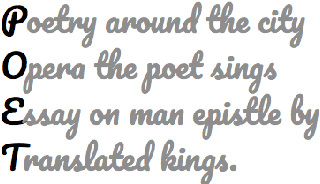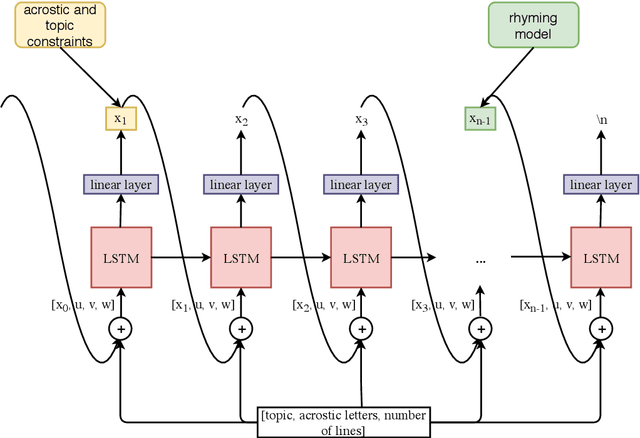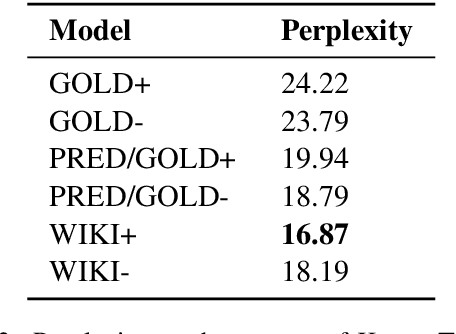Acrostic Poem Generation
Paper and Code
Oct 05, 2020



We propose a new task in the area of computational creativity: acrostic poem generation in English. Acrostic poems are poems that contain a hidden message; typically, the first letter of each line spells out a word or short phrase. We define the task as a generation task with multiple constraints: given an input word, 1) the initial letters of each line should spell out the provided word, 2) the poem's semantics should also relate to it, and 3) the poem should conform to a rhyming scheme. We further provide a baseline model for the task, which consists of a conditional neural language model in combination with a neural rhyming model. Since no dedicated datasets for acrostic poem generation exist, we create training data for our task by first training a separate topic prediction model on a small set of topic-annotated poems and then predicting topics for additional poems. Our experiments show that the acrostic poems generated by our baseline are received well by humans and do not lose much quality due to the additional constraints. Last, we confirm that poems generated by our model are indeed closely related to the provided prompts, and that pretraining on Wikipedia can boost performance.
 Add to Chrome
Add to Chrome Add to Firefox
Add to Firefox Add to Edge
Add to Edge